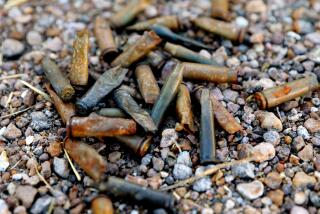As Tobacco and Sugar Crops Fade, Cubans’ Vices Are Targets
- Share via
HAVANA — Under a languid ceiling fan doing little to sweep away smoke or the stagnant summer air, quality controller Alesis Aguero draws determinedly on a panatela, mixing work with pleasure.
Like the other 800 employees of the Partagas cigar factory, Aguero is allowed to smoke on the job. He dips into the output once or twice a day. Another bonus accorded cigar workers is even more attractive. The 22-year-old Aguero’s monthly salary, which amounts to $6, is augmented with two fine Havana cigars a day that can be taken home from the factory.
Few working in the cigar industry, which is one of the country’s biggest hard-currency earners, smoke the gratuity cigars themselves. The freebies bring $1 to $5 each on the thriving black market, providing desperately needed cash in a country where the average monthly wage is less than $10.
The all-you-can-smoke policy on the production floor, however, encourages use of both cigars and cigarettes among factory employees, who churn out clouds of secondhand smoke for the rest of the workers.
“No one worries about that,” Aguero said. “In Cuba, we like to live for the moment.”
That may be the attitude of young Cubans, especially in the midst of an economic crisis brought on by the worst sugar harvest in 70 years and widespread damage to tobacco farms from the last hurricane season. But concern is mounting among their seniors that smoking is saddling the country with mounting health-care bills and that supplies of sugar -- the key ingredient in rum -- will be insufficient to deliver much to the domestic market once state producers fulfill their export obligations.
Falling output of the vices so entwined with Cuban culture has spurred fresh efforts by the government to discourage smoking and drinking. President Fidel Castro, who gave up cigars himself on the advice of his doctors, joked to students during a May visit to Argentina that the best thing to do with a box of cigars after buying them from Cuba is to “give them to your enemy.”
During the last Christmas season, Castro also lashed out against the evils of alcohol -- a posture analysts interpreted as a veiled warning that rum supplies for the domestic market would continue to tumble as the strapped sugar supply was being squeezed by the need for export earnings.
Officials here ignored requests for statistics on production of both rum and cigars. But the U.S.-Cuba Trade and Economic Council estimates that rum exports are well below $100 million annually and likely to shrink due to this year’s abysmal sugar cane harvest. At 2 million tons, output was 40% below last year and less than a third of the average three decades ago.
Cigar production last year was worth $240 million, Jaime Garcia, an official of the Habanos exporting enterprise, told journalists at the annual cigar festival in February, although he made no forecast for the industry in the wake of the hurricane damage.
Health-care officials say that smoking and drinking are costing Cuba in medical outlays and in lost productivity. Lung cancer is the No. 1 killer of Cuban men, said Jose Portillo of the Ministry for Public Health. But he sees little hope of steering people away from their indulgences.
“We Cubans are terrible about smoking and drinking rum. The television is always campaigning against alcohol and tobacco, but it’s hard for people. If you smoke and you can’t have a cigarette, that creates a lot of stress,” said Portillo, a doctor who smoked until a year ago.
Francisco Safora, a physician with the Havana Center for Hygiene and Epidemiology, said Cubans tend to regard the government campaigns against smoking and drinking as “a violation of their rights.” But he said more could be done to enforce smoking bans.
“People are more emotionally dependent on their habits when other things are in short supply,” he said, alluding to shrinking food rations and rising costs for basic items. “But up to 90% of the population smoked at one time or another,” and lung cancer is “a huge problem.”
Three packets of cigarettes are included in each monthly ration, a practice even doctors are reluctant to oppose because of the extra income from selling them on the black market.
It is those cheap cigarettes from the distribution packets that most cigar workers prefer to smoke at their rolling tables, said Partagas guide Jose Cajigal.
“It takes too much attention to smoke a cigar. Those that smoke when they’re working tend not to make their daily quotas, and if you produce less you earn less.”
Most workers are motivated to meet their 100- to 150-cigar daily production quota more by the two-cigar tip than the few cents’ difference in their monthly pay for making their quotas.
Julius, whose mother works at the Partagas factory, has set up a clandestine shop in the family’s nearby apartment where he resells her bonus cigars -- and full boxes replete with bands and cedar lining that appear to have fallen off the back of a Partagas truck. He and his brother hang out by the Capitolio building across from the factory, approaching tourists and delegations as they head for the official salesroom, where prices are at least five times above those on the street. Uninitiated buyers, though, run the risk of getting stale cigars or incurring customs complications when they leave the country.
“No one in our family smokes the cigars we get from the factory,” said the moonlighting college student, who did not give his last name. “It would be like burning money.”
More to Read
Sign up for Essential California
The most important California stories and recommendations in your inbox every morning.
You may occasionally receive promotional content from the Los Angeles Times.











